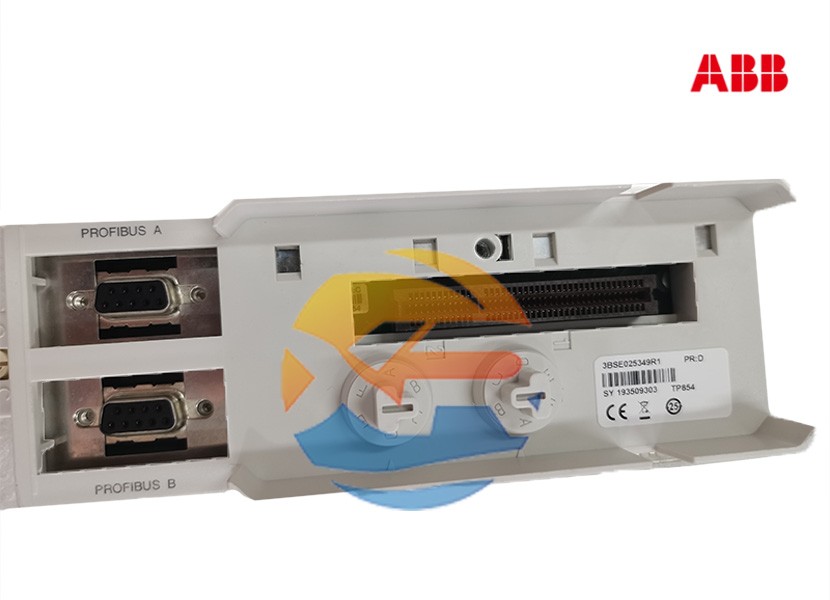
Understanding the technical specifications of a component is one thing; seeing its practical value in real-world operations is another. The ABB TP854 automation computer finds its purpose in the heart of critical industrial facilities. This article explores the key applications of the TP854, demonstrating how it functions as an operator workstation, an engineering hub, and an application server within the ABB System 800xA, across industries like power generation, oil and gas, and chemical processing.
The Need for Reliable Human-System Interaction
A Distributed Control System (DCS) generates vast amounts of data. This data is only valuable if it can be clearly presented to operators for decision-making and easily accessed by engineers for optimization. The TP854 is the robust platform that makes this interaction possible, reliable, and efficient.
Key Application Roles for the TP854
1. Primary Operator Workplace in Central Control Rooms
In a power plant or refinery, the control room is the nerve center. Operators monitor and control the entire process from here.
- Scenario: An operator needs to respond to a high-pressure alarm in a distillation column.
- Solution: The TP854, running the 800xA operator software, instantly displays the relevant process graphic with the alarm highlighted. The operator can quickly open a faceplate for the control loop, assess the situation, and take corrective action. The computer's performance ensures graphics render quickly and responses are immediate, which is critical during emergencies.
2. Engineering and Maintenance Station
The DCS is not static; it requires continuous improvement, troubleshooting, and expansion.
- Scenario: A control engineer needs to modify a control logic sequence for a pump to improve efficiency.
- Solution: On a TP854 configured as an engineering station, the engineer uses the 800xA "Control Builder" software to access the live application online. They can safely test and download the logic changes to the controller. The TP854's power allows for smooth operation of the engineering tools, reducing configuration time.
3. Application Server for Data and Connectivity
Beyond direct human interaction, the DCS needs to run background services.
- Scenario: A plant manager needs a daily production report, and a corporate system requires real-time energy data.
- Solution: A TP854 can host server applications like the 800xA History subsystem, which archives process data for trends and reports. It can also run OPC server software to securely share data with higher-level business systems (like ERP) or maintenance management systems. This consolidates functionality on a certified, supported hardware platform.
Industry-Specific Applications
Power Generation
In a thermal power plant, TP854 computers are used by operators to monitor boiler temperatures, turbine speeds, and generator outputs. The reliability of the TP854 is crucial, as any downtime can lead to massive financial losses or grid instability.
Oil and Gas
On an offshore platform, space is limited, and the environment is harsh. The compact, rugged design of the TP854 makes it ideal for use in local equipment rooms where engineers need access to configure and troubleshoot the control system for critical processes like gas compression.
Pharmaceutical Manufacturing
In batch processes requiring strict compliance (e.g., FDA 21 CFR Part 11), the TP854 provides a secure, auditable platform. It ensures that electronic records and signatures are managed correctly on a validated system.
The Tangible Benefits of Using the TP854
- Increased Operational Efficiency: Fast, reliable operator stations enable quicker responses to process changes, optimizing production.
- Reduced Engineering Time: Powerful engineering stations allow engineers to work more efficiently on system expansions and optimizations.
- Enhanced System Availability: The ability to configure TP854s in redundant pairs for critical roles ensures that a single computer failure does not impact plant operations.
- Lower Total Cost of Ownership: As a pre-integrated solution from ABB, the TP854 reduces compatibility issues and simplifies support, leading to lower lifecycle costs.
Conclusion
The application of the ABB TP854 extends far beyond being just a computer; it is an integral part of the control system's ecosystem. Its roles as an operator's window into the process, an engineer's tool for optimization, and a server for data connectivity make it indispensable for the safe, efficient, and continuous operation of modern industrial plants. By providing a dedicated, high-performance platform for these critical tasks, the TP854 directly contributes to productivity and profitability.
